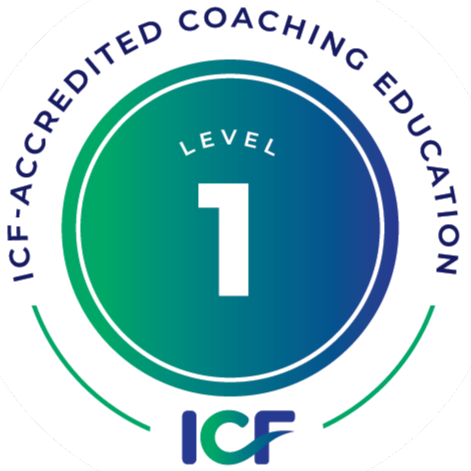
By: Elizabeth Saigal, Ph.D.
Going into the first session, I had anxiety about putting myself out there as a coach before other highly skilled coaches. The syllabus stated that we would work collectively with a client for the duration of the class by taking it in turns to coach and receive feedback from our peers and instructor. We would also meet with our instructor for individual coaching to review “The good, the bad, and the ugly” from our session. I swallowed hard and put my feet one in front of the other.
It quickly became apparent that this would be quite unlike the other ILCT classes I had taken so far. This was a lab for putting into practice all that we had learned about life coaching up until this point. When it was my slot, I set the intention to give a representative sample of my coaching in order for the feedback to be of most benefit. For the most part, I thought I had done fine until the feedback began!
The major stumbling block I had demonstrated was putting my own agenda ahead of the clients. For the next week, I thought of little else trying to get my head around what it really meant to adopt the client’s agenda without interjecting your own. I spoke to other professional coaches on this issue who advised me to frame my questions based upon what I was most interested to know more about. I received coaching myself around the flow of the coaching conversation. I was determined to overcome this tendency to be directive.
Each of us made errors such as occasionally stacking questions or using closed questions or deviating from the prescribed coaching framework. The feedback helped us to pay attention to and correct these habits. It also helped us to strengthen use of skills such as silent space, standing for and tracking with the client. The greatest opportunities however, came from beginning to question and discover how boundaries are established in coaching. What does it mean to have a conversation as equal partners? We began to gain an appreciation for the value of each of the fundamental pieces of the coaching conversation and how to effectively manage them. We started to consider how to alter our coaching based on the clients preferred style of interaction and development.
It should be noted that there were some differences to coaching in this class compared to meeting with a client in a regular one-on-one or peer group setting. First, the expert audience increased anxiety. Second, the detailed perusal of the client’s preparation form increased priming of the coach with all kinds of expectations, thoughts and opinions. Both of these may contribute to leading the client. The examination conditions magnify the desire to make the coaching high value. Do not fall into the trap of generating that value by giving the client solutions. The coaching process by itself provides the value. Spending time interpreting the clients written session preparation is useful in getting a sense of progress, possible limiting beliefs and the client’s current focus. The danger is that it may be tempting to share unsolicited opinions on the basis of this. If these things do not come up naturally during the course of the session do not go there.
With these caveats in mind, a further major benefit is that over the course duration we were able to experience a model for an entire coaching term. We observed the building of rapport with the client, the consequences of a strong agenda, making connections between sessions, identifying pattern’s in the client’s way of thinking and wrap up at the end of the period.
For me, this class was critical in transitioning from attempting to coach piecemeal according to the ICF model and really integrating the process. I thank each of my classmates and instructor Lynn Meinke for their invaluable feedback and leave you with this final thought. If the idea of this class has you running in the other direction, take it anyway. Step into the challenge to unleash your coaching potential.
Dr. Elizabeth Saigal has been an ILCT student since Spring 2012 and is working towards becoming a master life coach. Her ideal client is one who is intent on connecting with their inner truth and aligning with their intuition to live a life on purpose. You can connect with her by email to [email protected].




